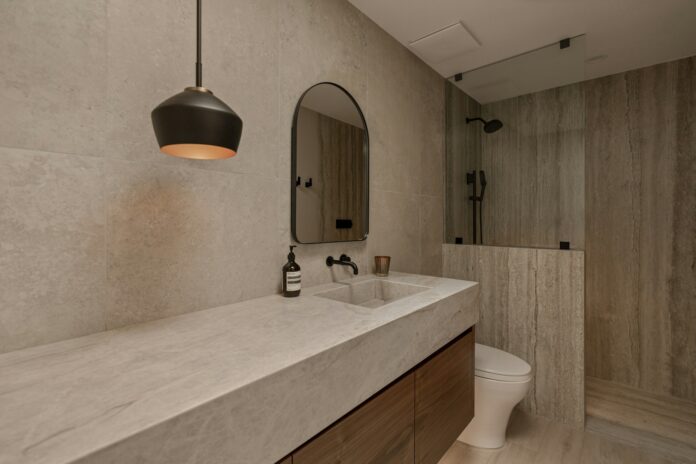Moving house is regularly listed as one of the most stressful life events a person can endure. Indeed, a 2015 poll revealed that six out of ten Brits regarded moving house as their most stressful life event, above having their heart broken, divorce, and starting a new job.
No wonder, then, that so much emotion is attached to the process of buying a new house, with prospective buyers often looking for that special ‘connection’ with a property in all the wrong places.
Getting an offer accepted can feel like a weight has been lifted and emotions can be replaced with a cool-headed pragmatism, but in reality, this is only the start of the stress.
Unfortunately, with emotions having played such a crucial role in your property search’s journey up until now, it can be surprisingly difficult to suddenly put your practical head-on to finalise the deal. To ensure an emotion-free purchase that’s all about making a viable investment rather than following blind desire, there are some practical steps you can take. These are those; our IDEAL guide to finalising a property purchase free from emotion.
ACKNOWLEDGE EACH CHECK AS A HURDLE CLEARED
A house purchase can be a lengthy process, on average taking 15 weeks after an offer has been accepted for everything to be finalised.
It’s a good idea to have a visual checklist assembled that takes into account the various elements of the process, with reasonable timescales listed next to them helping to keep everything in perspective.
It should be noted that over 300’000 property sales fell through last year, a 12% rise on 2019. The most common reasons include the lack of mortgage pre-approval, and a building survey or homebuyer report revealing something untoward.
To mitigate the risk of these eventualities, you should keep track of each key check in the process, including the hire of a solicitor, the approval of a mortgage, the completion of a building survey, and so on, enabling you to visualise your timeline as it ticks down. View each item ticked off as a hurdle cleared; this will prevent you from blindly carrying on with the house purchase if, say, your building survey revealed significant structural damage.
This clinical approach will avoid costly errors and potential disappointment in the long run.
AVOID OVER VISUALISING
It’s also essential that you avoid fantasising about a property that, at this point, may never belong to you. As tempting as it can be, it’s especially worth avoiding arranging additional viewings that see you measuring if there’s space for your sofa, room for all your kitchen kit, or even storming round to meet the neighbours enthusiastically but, let’s face it, prematurely.
Instead, it’s worth drawing an emotional barrier around your potential future property, at least until you have a completion date or, even better, a signed and sealed contract. This doesn’t only refer to viewing and visualising the inside of the property; avoid driving past the house, too, as you’re only setting yourself up for major disappointment should things fall through.

BE REALISTIC ABOUT DELAYS, BUT DON’T PUT UP WITH THEM FOREVER
Timescales for property purchases vary a great deal depending on the size of your chain, any setbacks experienced along the way, and even the speed that your solicitors operate.
Not knowing your precise timeline can make it far harder to remain distant enough to pull the plug when things stretch out for so long that completion begins to feel unlikely (and costly). Hence why it’s also vital that you take a little time to understand timescales.
As we mentioned earlier, an average-sized property chain with few hiccups should take just over three months to complete, making this a pretty good baseline to go off of. Equally, taking the time to read the initial paperwork that your solicitor sends outlining the size of your chain and the situations of everyone in it can help you to build a more realistic picture.
By then adding around a month or two onto the end of that timescale for unexpected setbacks like mortgage delays and the need for further surveys, you can thus set a clear date by which you would ideally like to have moved. And, once you’ve made a note of that date, you should be far better positioned in sticking to your guns and making that difficult decision to pull out before the wait gets out of hand.
Read: 5 checks to do when buying your first home
KEEP YOUR OPTIONS OPEN
While it’s not necessarily a great idea to continue searching property listings once you’ve had an offer accepted, it’s also not all that wise to delete your accounts and assume that the search is over, just because you’ve had an initial offer accepted.
Instead, emotion-free purchases are ultimately about keeping your options open. The reality is that, right now, you and your new home haven’t made any kind of commitment to each other, meaning that it doesn’t pay to put too many eggs in this one basket.
Remember, there will always be another property to fall in love with. You want to make sure that you keep options open by leaving your realtor accounts on standby, and, again, avoiding making purchases made with this specific property in mind. This way, if you do have to return to the drawing board, it’ll be far easier to do so with speed and clarity, increasing the chances that you’ll quickly stumble across a new home that steals your heart, and shows you exactly why that first purchase didn’t go to plan in the end.
THE BOTTOM LINE
Emotion-free home purchases can feel impossible, and we aren’t denying that you’ll need to work to keep your focus steady here. However, keeping your head in the game is your best possible chance at ensuring that a purchase truly is the right option for you. Good luck, and might we expect an invitation to the housewarming party?
Looking for a further dose of realism? Check out these 4 major changes to the UK housing market in 2021.





